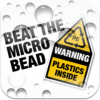So many cool, plastic-free innovations; so little time and blog space

I attended the Plastic Pollution Coalition’s Think Beyond Plastics Competition conference two weeks ago and have been trying to find the time to sit down and write about it ever since! There were so many cool plastic-free innovators and activists there, I barely know where to begin. If you will recall from my previous post, the competition sought to reward and support creative start-up entrepreneurs working to be part of the plastic pollution solution.  Such as…
Pulpworks
Pulpworks was one of the grand prize winners. The company wants to replace the frustration of the plastic blister pack with a more eco-friendly option made entirely from recycled paper. Â Instead of this…
wouldn’t it be nice if, in situations where packaging is necessary, that packaging was made from compostable, 100% post-consumer waste paper?
As you can see, there isn’t even any glue in this package. Â Just paper pulp and cardboard.… Read the rest








